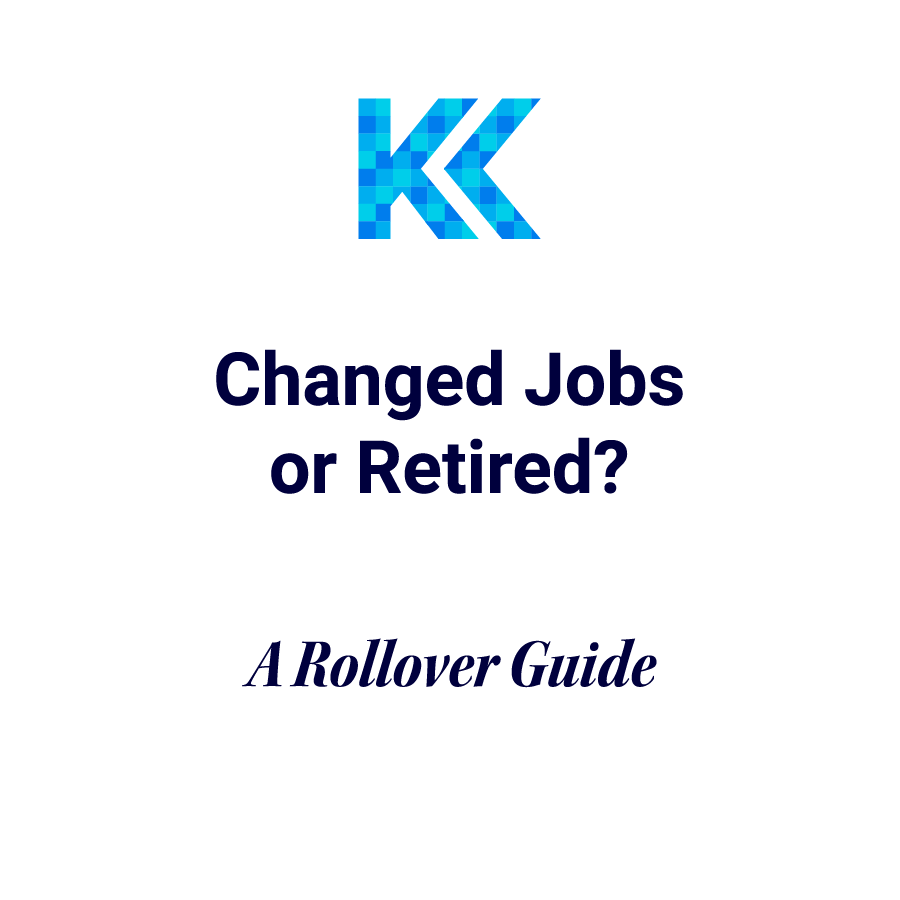Changing jobs, retiring, or reviewing your financial plan often brings up the question:
“Should I rollover my employer retirement plan?”
It’s an important decision whether it’s a 401(k), 403(b), 457, or a different plan. Like most financial decisions, the right answer depends on your situation.
Here’s a breakdown of what you need to consider:
What Are Your Options?
When you leave a job or retire, you generally have four choices for your workplace retirement account:
-
Leave it where it is
-
Roll it into a new employer’s plan (if allowed)
-
Roll it into an IRA
-
Cash it out (not recommended for most, as it comes with tax implications and possible penalties)
Each option has pros and cons depending on your goals, fees, investment choices, and tax strategy.
When a Rollover Might Make Sense
Rolling over your 401(k), 403(b), or 457 into an IRA can make sense if:
-
You want better investment options:
Many employer plans offer limited investment options and restrict you to using mutual funds. IRAs can offer a much wider range of investments, such as ETFs. -
You want more control:
IRAs typically offer more flexibility with account management, asset allocation, and tax strategies like Roth conversions. -
You’re consolidating accounts:
If you’ve changed jobs a few times, rolling old plans into one IRA can help organize your financial life and make managing your portfolio easier. -
You could lower your overall costs:
Some employer plans have high administrative fees and expensive investment options. Rolling into an IRA can often save you a lot of money over time.
When It Might Make Sense to Leave It
There are times when keeping your money in the employer plan could be the better move:
-
You’re retiring between ages 55 and 59½:
Some 401(k) and 403(b) plans allow penalty-free withdrawals starting at age 55 if you separate from service. IRAs don’t. -
You need strong creditor protection:
Workplace retirement plans often have stronger protections against creditors compared to IRAs, depending on your state. -
You’re planning a backdoor Roth IRA contribution:
Having a large IRA balance can complicate the backdoor Roth strategy because of the pro-rata rule.
What About Taxes?
A direct rollover (trustee-to-trustee transfer) is not taxable.
If you cash out the account instead of rolling it over, you’ll owe income taxes at your current bracket, and likely a 10% early withdrawal penalty if you’re under 59½.
Pro tip:
Always opt for a direct rollover to avoid mandatory tax withholdings and penalties.
Special Considerations for 403(b) and 457 Rollovers
-
403(b) plans:
These are common with schools and non-profits. Watch for any annuity contracts inside 403(b) accounts, as they may have surrender charges or different rules. -
457 plans:
Governmental 457(b) plans allow penalty-free withdrawals at any age after you separate from service (though taxes still apply). Non-governmental 457 plans have more restrictions and risks you need to evaluate carefully before rolling over.
Frequently Asked Questions
“What is a direct rollover?”
A direct rollover transfers money directly from your old retirement plan to an IRA or new plan without you taking possession of the funds. This avoids taxes and penalties.
“Will I owe taxes when I roll over my 401(k), 403(b), or 457?”
No, not if you do a direct rollover. Taxes and potential penalties only apply if you cash out instead of rolling over.
“Should I roll over to a Roth IRA?”
You can roll over a pre-tax 401(k) into a Roth IRA, but it’s considered a Roth conversion. This means you’ll owe income taxes on the amount you convert. It can make sense in some cases, but it needs careful tax planning.
Final Thoughts
Rolling over your retirement account isn’t a decision to make lightly. It’s worth taking the time to weigh your investment options, fees, tax situation, and retirement timeline. In some cases, rolling over simplifies your financial life and opens up more planning opportunities. In others, staying put could be the smarter move.
If you’re unsure what’s best for you, feel free to reach out. I’m always happy to help you walk through your options.

– Clint Kraft
Founder and Financial Advisor, Kraft Capital

